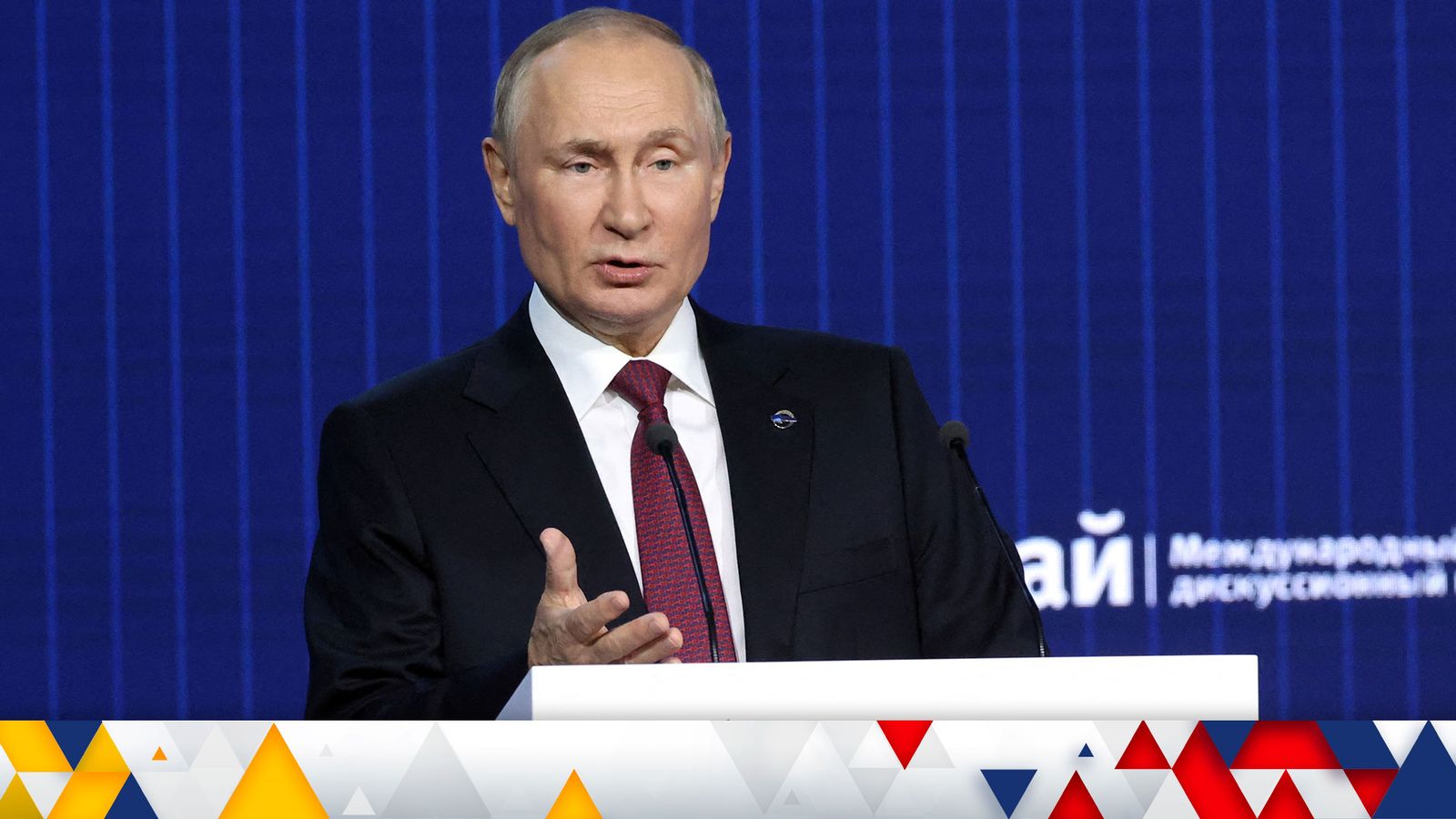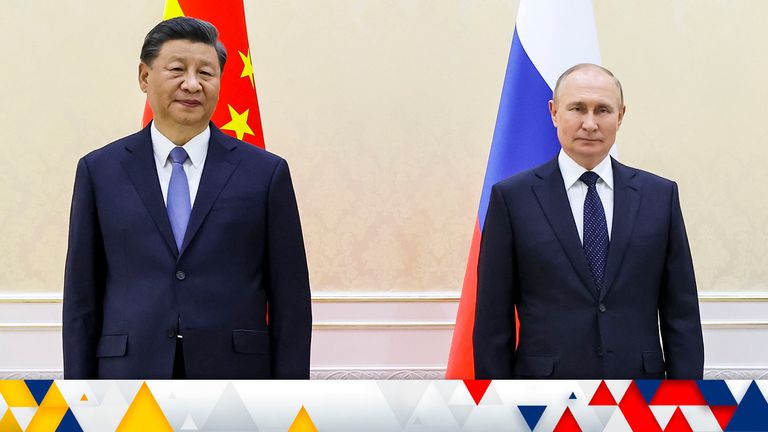Liz Truss was “crazy” when she raised concerns about nuclear weapons, Vladimir Putin has claimed.
During a major speech in Moscow, the Russian president hit out at the UK’s former prime minister.
He said she must have been “a bit out of it” and he claimed to have “never said anything proactively about possible use of nuclear weapons by Russia”.
“We have only hinted in response to statements made by Western leaders,” he added.
During her address to the UN General Assembly in September, Ms Truss had labelled President Putin’s threats to use nuclear weapons as “sabre-rattling”.
Speaking during a live, televised debate in Moscow on Thursday, Mr Putin also accused the West of playing a “dangerous, dirty and deadly game” in Ukraine – and he warned the era of Western domination was over.
In the discussion, entitled A Post-Hegemonic World: Justice and Security For Everyone, the Russian president sought to cast the blame for the conflict in Ukraine on Western countries alone.
Putin warns West it is playing ‘deadly game’ – live Ukraine updates
‘We didn’t do it’
“We were not the ones to organise a coup d’état in Ukraine, which resulted in our special military operations,” he said. “We are not the ones who did it.
“It’s the West that has driven us to this point,” he said. “I advocate democratic relations.”
He told the gathered audience, he would “never put up with” what the rest of the world tells him to do.
Repeatedly using the term “special military operation” to describe the war, he also warned: “He who will sow the wind, will reap the whirlwind.”
‘Under Western thumb’
Mr Putin sent his troops into Ukraine on 24 February, and has often claimed Western support for Ukraine is part of wider efforts by Washington and its allies to enforce what they call a rules-based world order – one he rejects.
“We tried to set up relations with the West and NATO, to make friends with them,” he said, “but the West imposes sanctions against those who don’t want to be under their thumb.”
As he spoke, China announced it was willing to deepen its relationship with Russia – and said any attempt to block the two countries moving forward would “never succeed”.
Mr Putin responded by saying Russia’s relations with China were at an “unprecedented level” and he called China’s President Xi Jinping a “close friend”.


